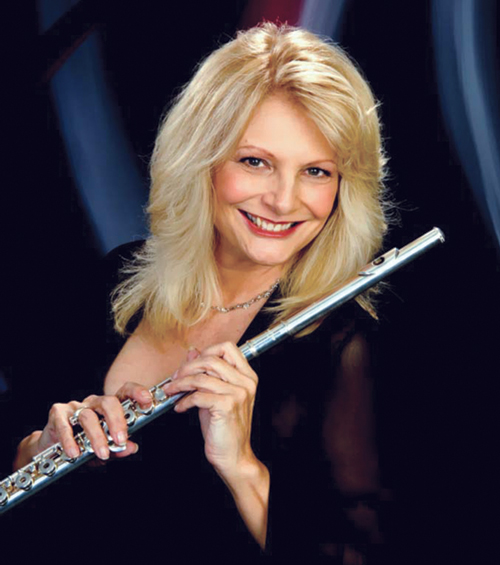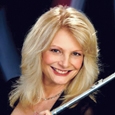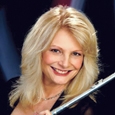
Are you a flutist who has started playing again after a five-, ten-, or twenty-year respite? I was and I learned a few valuable lessons along the way. After more than twenty years of playing again, I now am teaching someone whose journey is similar to mine. My experience of starting over has helped me offer guidance and inspired me to share my story.
I attended the New England Conservatory of Music on a full scholarship and studied with some of the finest flutists of the Golden era: Claude Monteux, Jim Walker, James Pappoutsakis, and Frances Blaisdell. I have wonderful memories of my times with them, the progress that was made, and the dreams I once had. Sometimes, however, life throws us curveballs. My life took a different path away from music when I started a family.
Whatever the reason, it is never easy to begin playing flute again. First, there is the memory of one’s former glorious sound, embouchure flexibility, and technical prowess. Then the reality of how you sound now sets in. Relearning to play, as opposed to picking it up for the first time with no expectations, is quite unnerving to say the least, but you can do it and create a new dream in the process.
Baby Steps
The first thing to do is not hold on to the flutist you used to be. Concentrate on taking baby steps. I began by listening to recordings of flutists I admired and focusing on their phrasing. It brought back the memory of how I used to feel when I could play well and gave me the incentive to keep trying even through the times I thought I would never sound that good again. So don’t set lofty goals at the outset. Doing so will only result in frustration. Pace yourself, accomplish a little, and then reset your goals to accomplish a bit more.
Breathing
By and large the most difficult technical aspect of playing the flute is breathing. I was surprised to learn that the flute requires the most air of any wind instrument. Playing long tones (or should I say attempting to) was helpful, and I constantly reminded myself that Rome wasn’t built in a day.
Fingerings
I remembered the first and second octave fingerings and where the notes were on the staff. However, the notation of the higher notes above the staff was more difficult to remember, and something I did not want to attempt yet since the squawk I produced was anything but encouraging. So start with what you can play now.
Repertoire
A really bad idea is looking at your old repertoire and thinking you should be able to play it. Playing this repertoire is not going to happen any time soon. Start simply. Realize that you are a beginner again; but a beginner who has the advantage of knowing that time and practice will produce results.
Take It Easy
Once again remember that breathing is probably the most challenging hurdle. I found that if I played a simple favorite melody and enjoyed doing just that, the fingers and the breathing worked themselves out much more easily than when I played scales. Each practice session I played from a book of songs that included a CD accompaniment to help get a sense of flow back.
Find a Place to Perform
One of the quickest ways to get your chops back is to play with others. Performing at church and retirement communities helps you as much as it helps the audience. Join a community band or flute choir. If you like jazz and rock, attend some open mics and meet other musicians.
The Flute
Get your flute serviced – especially if it has been sitting unplayed in the case for years. Besides fixing your flute, a good repair person can be a good resource about flute activities in the area.
Don’t blame your instrument as I did. I must have gone through three different brands of flutes in my first year of starting over. In the end it was very hard to admit that it was me and not the instrument. Sublimating one’s ego is never an easy thing to do, but under these circumstances, it is highly advisable. Remember your goals and stick to them.
Find a Good Teacher
After practicing for one to two hours daily for a year, I found a teacher to guide my progress. Finding a good teacher may not be an easy process; so don’t be afraid to change teachers if the first does not work out for you.
Find Inspiration
My repair person suggested I attend a masterclass taught by Gary Schocker. His sense of humor and personable ways, combined with his beautiful playing, were an inspiration to me. Performing in a masterclass this second time around was very different for me. I was not flogged if I hit a wrong note. Schocker made suggestions, played the passage, and made it seem so easy to follow suit that I was soon doing just that. Before I knew it, I was able to play the Taffanel and Gaubert scales effortlessly once more and revisit some of my beloved repertoire. I began to put in even more practice time because I now had a glimmer of how I used to play.
Practicing was no longer a difficult experience technically and emotionally, so of course I wanted to play more and more. I discovered that all the pieces I had once memorized many years ago were still there under my fingers. Attend masterclasses whenever possible.
Record Yourself
Recording practice sessions and performances provides a valuable yardstick to measure progress and discover what needs fixing to reach goals. You may be surprised that your playing is actually better than you expected.
Success
After three years, I had my mojo back. It may take you more or less time. I now have been performing again for 23 years and have several students. Teaching them is rewarding and keeps me on my toes. I rejoined the musicians union, met many fine flutists in the New Jersey Flute Society, and have played in several area orchestras and bands including the Atlantic Pops and Ocean City Pops. I formed a jazz combo and a classic rock duo and sought opportunities to perform, often with fine crossover musicians at open mics. I also have performed as a smooth jazz soloist and stroller at several of Atlantic City casinos and in 2003, formed Magic Flute Wedding Music. I used the business skills I learned while working in the corporate world to build up my business and have established my presence as a professional flutist in the area.
My final advice is to practice, practice, practice, and do what you love. The rest follows.






